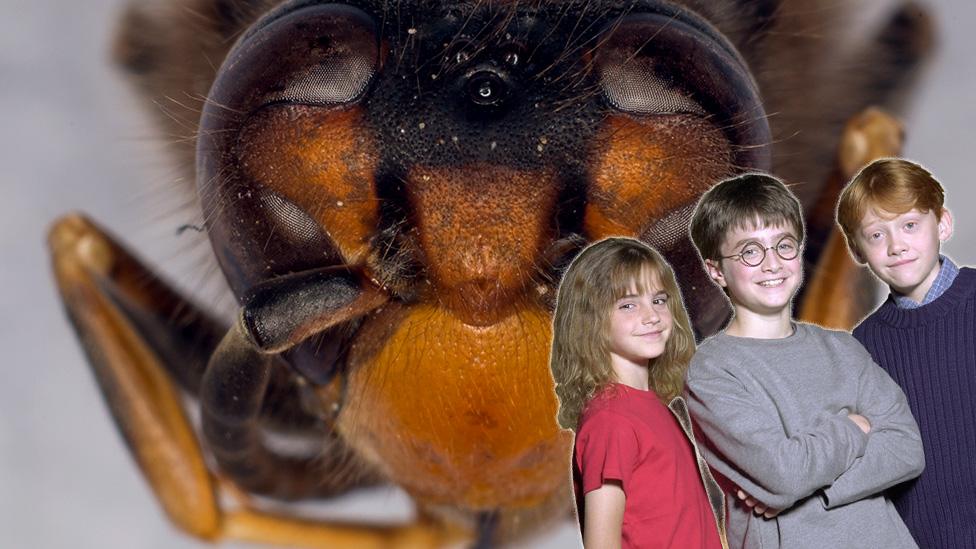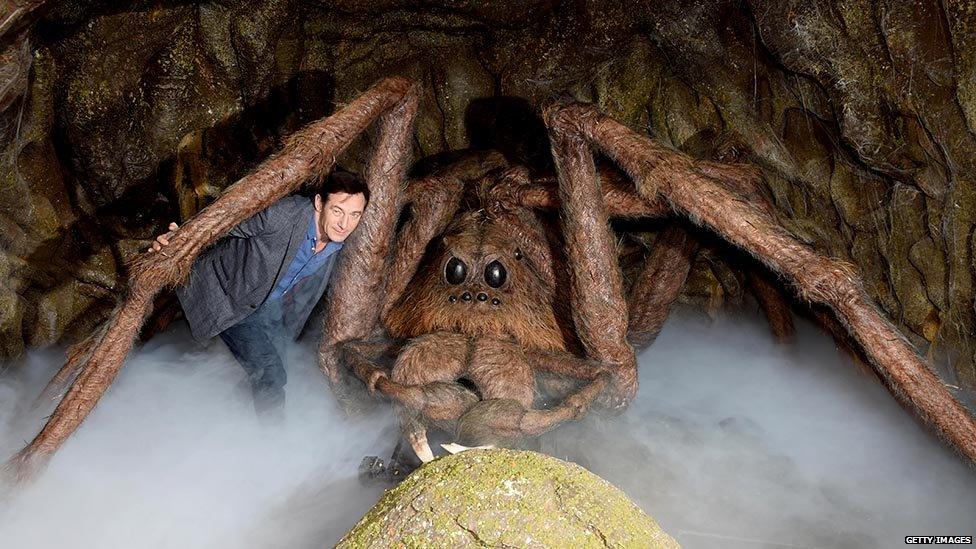Why this wasp has been named after Lucius Malfoy from Harry Potter
- Published

A newly discovered species of wasp has been named after one of Harry Potter's greatest villains, Lucius Malfoy.
New Zealand researcher Tom Saunders hopes to take the sting out of the tail of what he sees as a misunderstood insect.
Tom has named the bug he recently discovered Lusius malfoyi, after the fictional bad guy.
As all good Harry Potter fans will know, Lucius is the father of Harry Potter's school bully, Draco Malfoy.
In the novels and films, Lucius helped Voldemort terrorise Harry and his friends, while wasps are best known for ruining picnics and being a real pain all summer.
Jason Isaacs played the character in the movie adaptations of JK Rowling's books, making his debut in the 2002 film Harry Potter and the Chamber of Secrets.
"People see wasps as villains, as the 'bad guys," Tom told CNN.
"But the truth is that the vast majority of wasp species are either neutral or beneficial, from a human standpoint."

Jason Isaacs played Lucius Malfoy in the Harry Potter films and clearly has a lot of insect friends
He says there are direct likenesses to the wasp he discovered to the mostly evil wizard.
"Just as Lucius Malfoy is pardoned after separating from Voldemort's allies, I'm asking people to pardon wasps in order to restore their reputation as interesting, important creatures," he says.
But Tom's decision to name the wasp after Lucius Malfoy isn't just because he is a big fan of Harry Potter; he wanted to make a statement about how humans interact with insects and animals.
"I was inspired to name this species in a way that would hopefully spark a larger conversation about the relationship that humans have with the millions of species that share the planet with us," he says.
"There are more species of parasitoid wasps than fish, reptiles, amphibians, birds and mammals combined.
"They are used in New Zealand and around the world to control pests that would otherwise require far more money and pesticides to combat."
Parisitoid wasps generally don't sting or live in colonies, but they do lay their eggs inside other creatures, which is almost certainly part of the dark arts.
Find us on Instagram at BBCNewsbeat, external and follow us on Snapchat, search for bbc_newsbeat, external